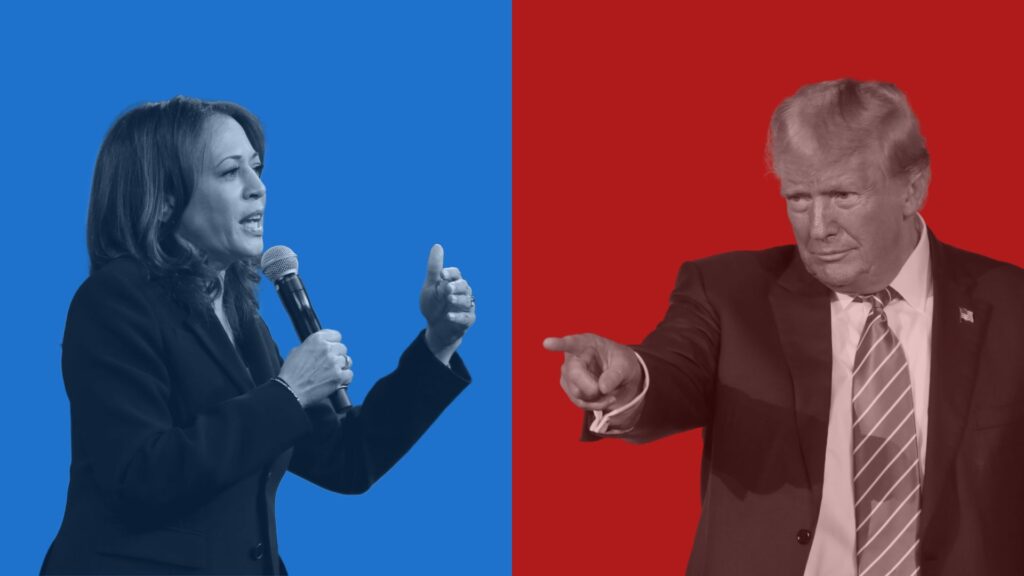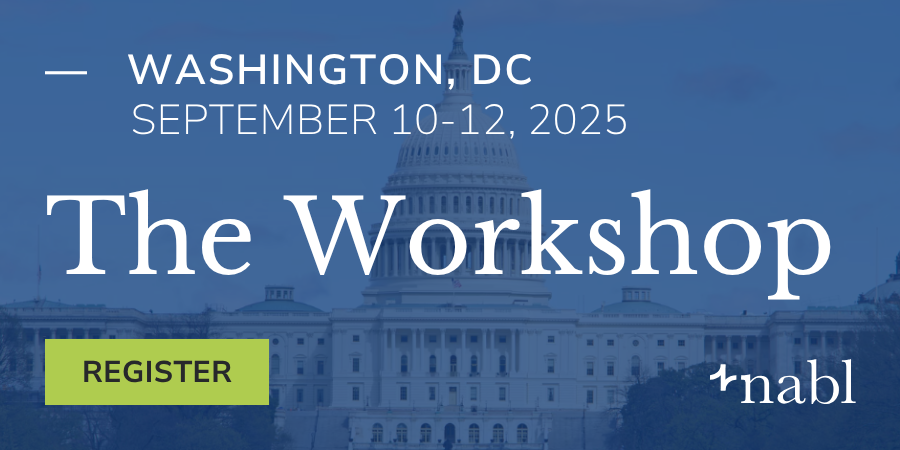- News
2024 Presidential Election: Where They Stand on Munis
Neither candidate’s policy platform offers many details on municipal bonds, but we still have some ideas.

By: Brian Egan, Director of Government Affairs, NABL
With just more than 12 weeks until Election Day, November 5, this cycle feels like it is moving at breakneck pace. Republicans aim to hold on to their narrow majority in the House while flipping the Senate in their favor. Meanwhile, Democrats face a challenging electoral map in the Senate with several vulnerable seats but potential tailwinds in the efforts to take back the House. Both parties continue to shell out tremendous resources to get their candidate in the White House.
Municipal bond priorities may not take center stage in a president’s political campaign, but their outlook is still shaped by who is in office. Let’s explore each presidential candidate’s records to date on municipal bonds and the big questions leading into next year.
The Democrats 🫏
President Joe Biden’s decision to drop out of the presidential race and endorse Vice President Kamala Harris as the Democrat nominee shook the political landscape. Biden’s tenure in Washington allowed him to establish a lengthy policy record. He had long served as an ardent champion for infrastructure investment but had a mixed record on municipal bond priorities. While serving as Barack Obama’s Vice President, he worked to advance and implement the American Recovery and Reinvestment Act (ARRA) of 2009, which temporarily authorized Build America Bonds (BABs) and raised the threshold for the small borrower’s exemption to $30 million per calendar year. On the other hand, the Obama administration repeatedly proposed capping the value of the tax-exemption at 28% for taxpayers in higher brackets.[1]
As President, Biden advocated for key municipal bond priorities, including the restoration of advance refunding bonds, in his early iterations of the Build Back Better plan. Most of those priorities fell casualty to repeated reductions in the plan’s size and scope. Ultimately, portions of the plan morphed into two separate pieces of legislation: the Infrastructure Investment and Jobs Act (IIJA) of 2021 and the Inflation Reduction Act of 2022. Neither bill included key NABL priorities. The IIJA did, however, authorize two new categories of exempt facility bonds, and the IRA loosened limits on tax credits used in conjunction with tax-exempt bonds.
The Democrats’ rapid cohesion around Vice President Kamala Harris has allowed her to build a formidable campaign, but it remains unclear how Harris’ ascent will shape the party’s broader political platform and tax agenda. Prior to the White House, she built a strong record around social, national security, and judiciary issues. As a Senator, she joined the entire Democratic caucus in voting against the Tax Cuts and Jobs Act (TCJA) of 2017, which eliminated tax-exempt advance refunding bills, but her record on municipal bond policy is otherwise light. Nonetheless, it seems unlikely she would deviate significantly from other Democratic Administrations, particularly the Biden Administration, on issues facing our industry. She would likely opt to pay for tax reform through increased taxes on high income earners and large corporations rather than reductions to tax expenditures for infrastructure and economic development, but a mixture of the two may be necessary to pass any comprehensive tax package.
On August 6, Harris announced Minnesota Governor Tim Walz (D-MN) as her running mate. Walz likely has the most experience with municipal bonds of the candidates on both parties’ tickets, particularly given his current role as a chief executive for a major issuer. Under his watch, the state has completed five general obligation deals, closed numerous other state-supported transactions, and maintained the highest rating among Moody’s, S&P Global, and Fitch Ratings. As a member of Congress, Walz voted to temporarily authorize new bond finance tools under ARRA and against the 2017 Tax Act.
The Republicans 🐘
Republicans rode a political high leading into their July convention where Former President Donald Trump officially secured the party’s nomination and announced Senator J.D. Vance (R-OH) as his pick for Vice President. Neither Trump nor Vance have voiced many opinions on municipal bond policies. Both, however, have reiterated their commitments to extending key provisions of the TCJA—which sent shockwaves through the municipal market when it passed in 2017. Paying for those extensions will pressure negotiators to cut various tax expenditures and find other revenue raising offsets.
Among the most fiscally consequential policy disputes is whether to raise (or lower) the corporate income tax rate. The broader Republican party has yet to come to an agreement on this issue―including Vance, who has previously expressed opposition to lowering the corporate tax below its current rate of 21 percent, and the Republican Chair of the House Ways and Means Committee Jason Smith (MO-08), who has floated raising the rate to 25 percent. Trump, however, has made no secret of his desire to further cut the corporate tax rate, possibly to as low as 15 percent.[2] Such a reduction would put tremendous pressure on tax writers to find offsets through cuts to other programs.
Vance’s limited tax record in the Senate has mostly complemented his other social issue priorities. He has introduced legislation that would target the endowments of select universities as a part of a broader campaign to reign in higher education and cosponsored various other bills. His populist lean and emphasis on supporting local communities could make him more sympathetic to municipal bonds more broadly.
Bottom Line
Regardless of electoral outcome, it remains likely that the next Congress will need to tackle some level of tax reform. Campaign promises made across the political spectrum render the prospect of Congress simply allowing the TCJA to expire without any action unlikely. Flat extension of the expiring TCJA provisions would cost about $3.8 trillion over the following decade.[3] The appetite to debt finance new tax reform is also likely lower than it was in 2017 due to persistent inflation (despite recent cooling), a growing federal debt load, and the high cost of borrowing.
Municipal market participants, including bond lawyers, should be aware of the growing likelihood of tax reform next year. They should also consider discussing various advocacy options with their respective clients, including encouraging issuers and borrowers to participate in the Government Finance Officers Association’s (GFOA’s) Built By Bonds campaign.
[1] General Explanations of the Administration’s Fiscal Year 2013 Revenue Proposals. Page 80. Web access: https://home.treasury.gov/system/files/131/General-Explanations-FY2013.pdf#page=80
[2] The Mandate for Leadership (Project 2025) plan has proposed a corporate income tax rate of 18 percent. Web access: https://static.project2025.org/2025_MandateForLeadership_FULL.pdf
[3] Assumes $3.3 trillion added to the primary deficit and an increase in federal borrowing cost outlays of $467 billion for the period between 2025 and 2034. Congressional Budget Office (CBO). Budgetary Outcomes Under Alternative Assumptions About Spending and Revenues. May 2024. Web Access: https://www.cbo.gov/publication/60271#_idTextAnchor007
